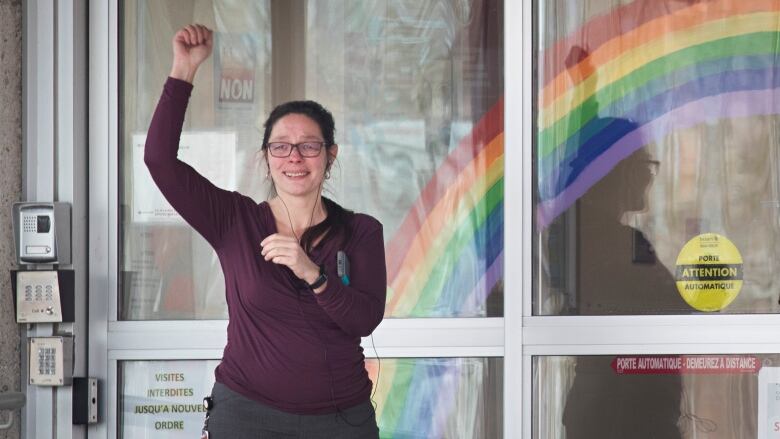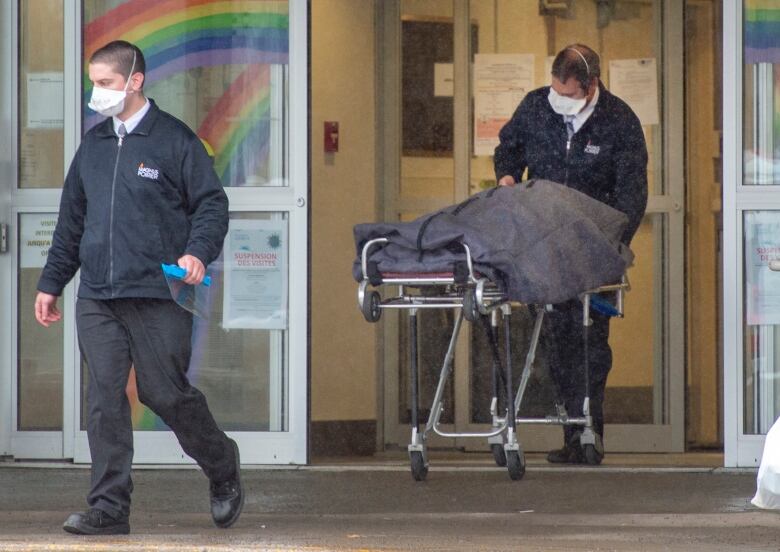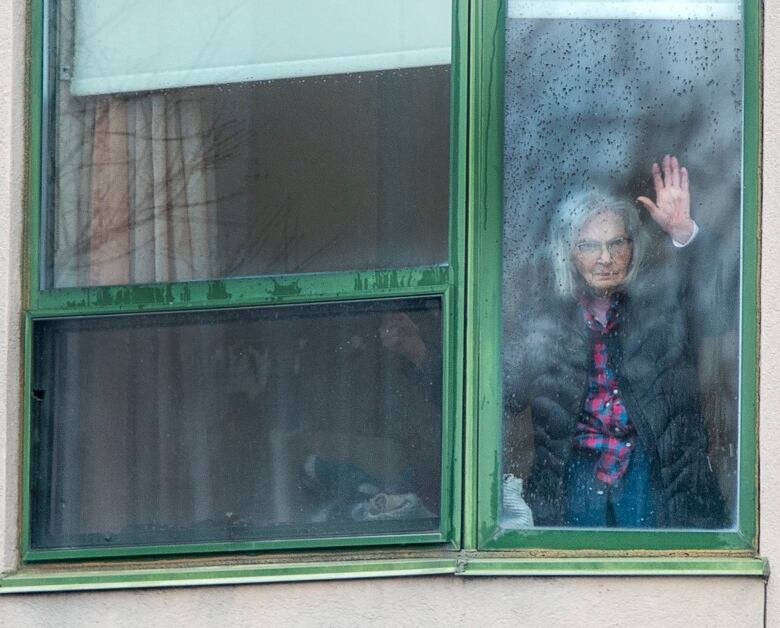Why are Quebec's nursing homes so understaffed, and what's being done about it?
The government is desperate for reinforcements to help overwhelmed patient attendants

Outbreaks of COVID-19 have been detected in dozens of long-term care homes in the province, leaving a mounting death toll that is staggering and end-of-life situations that are heartbreaking.
The patient attendants(prposs aux bnficiaires)at the homes haven't been able to cope. Already short-staffed before the pandemic, their ranks have been further decimatedby infection, isolation and fatigue.
Authorities acknowledge thereare now simply too few attendantsto ensure residents are gettingbasic care. Along with the worrisomenumbers of dead are reports of residents parched, unfed and left in their filth.
The Quebec government has taken increasingly drastic measures to try to remedy the staffing crisis.
Early on, it boosted the workers' pay offering public-sector workers temporary pay increases of eight per cent. Those in private institutions,many of whom make little more than minimum wage, are getting an additional $4 per hour.
It's shifting workers from hospitals to the long-term care institutions, known by theirFrench acronym,CHSLDs. A newministerial orderallows teachers with health-care training to work in the homes.
Premier FranoisLegaultopened his news conference Tuesday with his most urgent plea yet for added help in CHSLDs.
"The only message I want to send is that we need extra pairs of hands," Legault said. "We need people with all sorts of medical training, whether they are family doctorsor specialists or nurses."
Backbone of the system
The patient attendants are responsible for bathing, cleaning and feeding patients who have little autonomy. Inmany ways, they arethe backbone of Quebec's long-term care system.
But even before the pandemic, CHSLDs across the province struggled to recruit enough attendants to provide quality care.

Quebec's ombudsman has repeatedly cited the staffing issue when examining the treatment of seniors in long-term care facilities.
Some CHSLDshave been forced to get creative in order to cope with the labour shortage.
A CHSLD in Drummondvillewas using local volunteers to do some of the less-specialized tasks of attendants, such as cleaning tables or cutting up food.
In theMauricieregion,managers have helped out on weekends when staffing dropped below critical levels. In Quebec Cityand elsewhere,CHSLDshave increasingly begun recruiting abroad.
It is difficult to pinpoint the start of the staffing shortage. Some trace it to budget cuts that date back to 2003. But the problem has become demonstrably worse in recent years,according to Franois Aubry, a professor of social work at the Universit du Qubec en Outaouais.
Aubry, who has conducted extensive research onpatient attendants in Quebec, pointed to three key factors that help explain why it is difficult to both recruit and retain workers in long-term care homes,only 36per cent of whom stay on the job longer than five years.
- Salary: The starting salary for a patientattendantin a publicly run long-term care home is $20.55 per hour.There are five rungs in the pay scale, which maxes out at $22.35 an hour. The pay is even lower in the private sector, where the starting salary is $13 an hour barely above minimum wage.
- Precarity: Fewerthan a third of Quebec's attendants have a stable, full-time job. Most of them work as casuals or on part-timecontractsand must work at several different institutionsto put together enough hours to make a living."It is one of the most precarious jobs in Quebec," Aubry said.
- Workload:Some unions estimate that before the pandemic, one attendant could be responsible for between 12 and 16 residents. Aubry says there is evidence this is unsustainable. Attendants have very high ratesof absenteeism due toworkplace injuries and psychological stress. This is compounded, Aubry said, by a "negative work environment," where managers can make overtime obligatory.
What's being done to fix the problem?
These problems haven't gone entirely unaddressed. But solutions were either insufficientor too slow in comingto forestall what Legault himself calls "the crisis in the CHSLDs."
In 2018, then health minister Gatan Barrette supported an initiative from the nurses' union to limitthe ratio of nurses to patients in various health facilities, including CHSLDs.
By most accounts, that pilotproject was a success, with nurses saying it allowed them to take more pleasure from their work and provide better quality care.

But before committing to putting that practice in placemore widely,Legault's government wanted to include health-worker-to-patientratios in ongoing negotiations with public-sector unions. Their current status is unclear.
"If we would have put in place these ratios in CHSLDs before the pandemic, we wouldn't be in this situation," said Denyse Joseph, vice-president of the Fdration interprofessionnelle de la sant du Qubec, which represents nurses and other health-care workers.
While promising to fix the staffing situation in CHSLDs,Legault saidhis desire to offer more permanent pay raises to public-sector patient attendants has been stymied by unions, who demand any pay increase be uniform across the board.
"That was a cheap shot,"said Jeff Begley, president of the CSN-affiliated federation of health and social services, which represents the patient attendants, as well as others in the health-care system.

What his union sought was an hourly pay increaseof $3for its members, instead of a percentage increase. That way those at the bottom of the pay scale like the attendants would get a higher percentage increase than those at the top.
Begley said Legault's initial offer to health-care workers, before the pandemic, was a 1.75 per cent pay increase. That would have translated to a raise ofless than 40 cents an hour for attendants.
Legault's other hope for solving the shortage of attendants is that Quebecers newly unemployed from the downturn brought on by the pandemic will seek out employment in CHSLDs
But Aubry, the social work professor,is not so sure that's a realistic premise, given the current working conditions.
"I don't think there will be a lot of people who will come forward," he said.
With files from Kate McKenna and Radio-Canada













_(720p).jpg)


 OFFICIAL HD MUSIC VIDEO.jpg)
.jpg)



























































































